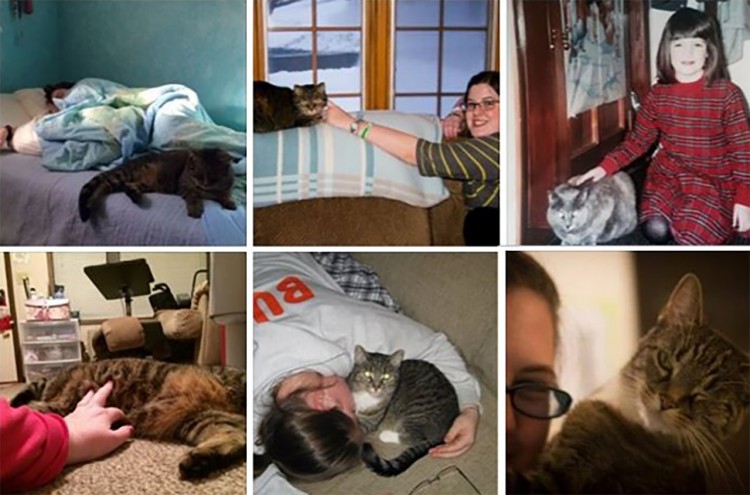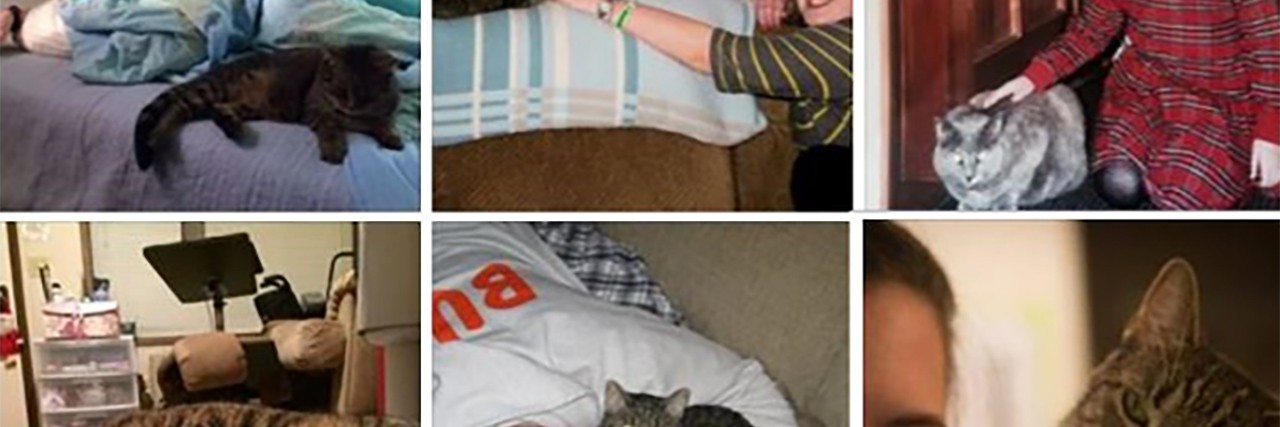Hi! I’m Lydia.
I’m a young adult with mitochondrial disease (mito). Mitochondria are in every cell, and they produce energy for the whole body. Well, yours do, but mine don’t do such a great job. It’s like using an iPhone with only 30% of its battery left and realizing your charger is faulty. In a human, that “low battery” means that my organs don’t have enough energy to do their jobs. I might qualify as bionic, as I have an insulin pump, a feeding tube, an ileostomy, and a central line (a permanent IV that goes in by my collarbone and ends at my heart). I have had many ER visits and hospital stays, surgeries, and procedures. I was in a nursing home for over a year (where no 25-year-old should have to be!), but I live semi-independently now, with an aide during the day and one-to-one nursing at night.
I got my master’s degree in English and nonfiction writing while in the nursing home. Unlike most vocations, writing/editing aren’t affected by unexpected hospital stays, broken sleep, or long periods when I can’t leave the house. It keeps me busy and engaged with other people and outside events. My apartment may be tiny, but my world is limitless!
What you just read is the biography of a disability advocate. There are a lot of ways to advocate, but I like to share my experience and answer questions so parents and teachers can do the very best for their kids.

While I do think it’s important for people to be aware of mito and other illnesses and disabilities, that’s not why I advocate. Awareness is important, but it’s not possible for everyone to know about every issue. Instead of specific signs and symptoms, I try to challenge people to see past assumptions and stereotypes and give others a bit of grace and a lot more respect.
Sometimes, disability feels like an invitation for assumptions and stereotypes. I spark attention because people can see my lines, tubes, pumps, dressings, and so forth. But to me, the “hardware” is just another part of my body. I’m so used to it, I don’t even see it when I look in a mirror. I always forget it’s the first thing most people see. If I were about to present at a conference about disability, and you took a seat in the audience, you would be sitting there waiting to me to delve into certain topics. After all, it’s a presentation about disability, and I’m at the front of the room in a wheelchair!
I would probably throw you for a loop when I started to speak. What if I told you that mito hardly comes up in my advocacy work? When I write and speak to groups, the bio I submit for the program reads more like this:
Lydia Wayman is an autistic advocate with a B.S. in education and an M.A. in English and nonfiction writing. Her presentations, writing and art use her experience to educate others about autism. She is a young leader with the Autistic Global Initiative and has lead youth with disabilities at a leadership conference and spoken to scout troops, parents, and several times at OCALICON. She contributes her writing about autism to magazines, books, and newspapers. Lydia enjoys mentoring younger autistic friends and supporting families by helping them understand how their kids see the world.
Mito might be what you see, but it’s not who I am. If I were to stop the pumps and disconnect the lines, you wouldn’t see mito. Autism is different. It’s a part of every thought and feeling and experience. That’s why I focus on autism in advocacy. I don’t care if you understand the medications I take, but I hope by knowing who I am, how I see the world, and why I’m different, others will take a step toward accepting the differences in all people.
When I talk and write about autism, I tend to focus on sensory issues, communication, and the impact typing has had in my life. I show how assumptions about my behavior are usually wrong. Overall, my goal is to help other people see that they never know the whole story about someone else. I do want people to understand autism — and mito — but I’d much rather people understand how off-base and harmful quick judgments can be. That would definitely help the autism community, people with serious illness and everyone else.
The next time a disability advocate rolls into town for a presentation, she may come in a wheelchair loaded with pumps, medicine, and tube feeds… so she can talk to you about autism. The next time you hear a child screaming in the grocery store, you see a person stand up from a wheelchair to reach something, or if your friend cancels plans yet again because she doesn’t feel well, remember that what you see is never the whole story.
Follow this journey at Autistic Speaks.
The Mighty is asking the following: Tell us a story about a time you encountered a commonly held misconception about your disability, disease, or mental illness. How did you react, and what do you want to tell people who hold this misconception? Check out our Submit a Story page for more about our submission guidelines.

